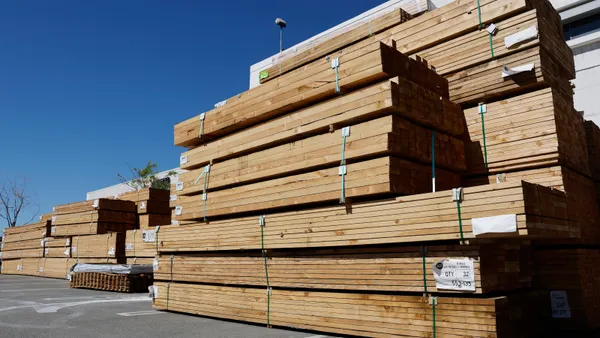Dive Brief:
- The Association of Equipment Manufacturers has come out against White House threats to impose an additional $200 billion of tariffs on goods imported from China.
- Dennis Slater, association president, said new tariffs imposed by both countries will hurt those who manufacture construction and other types of equipment and that more than one million jobs are at stake. Last Friday, President Donald Trump's administration established an additional $50 billion in tariffs on goods — including construction equipment — from China, which responded by issuing $50 billion of its own tariffs on U.S. goods.
- The slapping of additional tariffs on Chinese goods, according to The New York Times, is retribution for countermeasures China has taken — and said it will take — against the U.S. for imposing previous duties in March in what the administration categorized as an effort to curb China's "unfair" trade in American intellectual property, technology and other goods.
Dive Insight:
China has also pushed back against the U.S. for leveling steel (25%) and aluminum (10%) tariffs earlier this year. In April, the country filed a complaint with the World Trade Organization claiming that the tariffs violate international trade laws. The U.S. has accused China of "dumping" a glut of material into the U.S. market at cut-rate prices, leaving other suppliers unable to compete and harming the economy.
The manufacturers' association is not the only construction-related group to warn that the Trump administration's tariffs are not good for business. Earlier this month, the Associated General Contractors of America said that tariffs would likely put upward pressure on already high material prices. From May 2017 to May 2018, prices rose almost 9%, which is the largest annual increase in seven years. Pre-tariff prices for aluminum mill shapes went up more than 17% in the same period, while steel mill product prices increased more than 10%.
In addition, the AGC reported that steel mills have been swamped with orders beyond what they can handle in a timely manner, potentially leading to project delays and budget overruns.
Meanwhile, the U.S. is also dealing with the fallout from its decision to eliminate steel and aluminum tariff exemptions for Canada, Mexico and the European Union, effective June 1. Canada responded with plans to impose similar tariffs on U.S. steel, aluminum and other products, as did Mexico and the European Union. The exemptions had been in place since the tariffs were first announced in March, but the president said negotiations for permanent exemptions had been unsuccessful.













